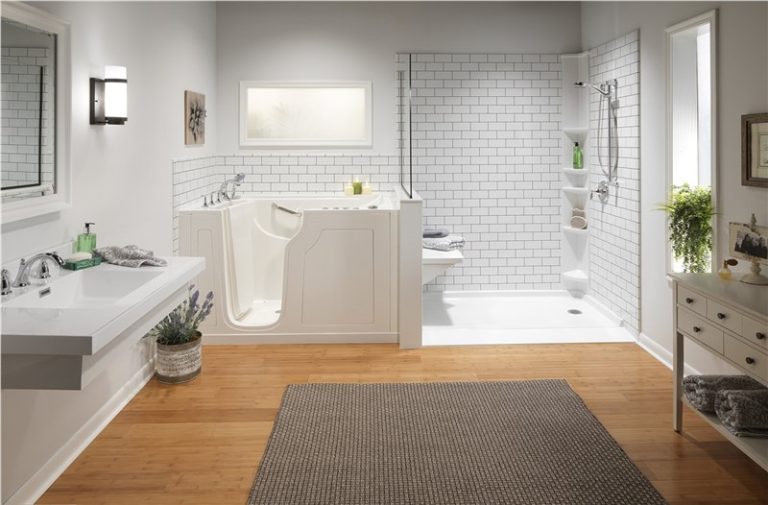When it comes to home improvement, the bathroom is often one of the most rewarding spaces to transform. Though compact in size compared to other rooms, it plays an outsized role in daily comfort and overall home value. A well-designed bathroom can provide a serene start to your morning, a calming retreat at the end of the day, and a boost to your property’s market appeal. For beginners stepping into the world of home improvement, understanding how to approach a bathroom renovation is essential. It’s not just about style—it’s about balance, function, and thoughtful planning.
Whether you’re dreaming of a spa-inspired oasis or simply trying to replace outdated fixtures, this guide will walk you through the foundational elements of bathroom improvement, offering practical insights and refined suggestions to help you design with clarity and confidence.
1. Begin with a Clear Vision
Before diving into materials or fixtures, take the time to define your goals. Are you aiming for a full renovation, or do you plan to make strategic updates? Consider your needs and how the space is currently functioning. Do you need more storage? Better lighting? Improved ventilation? Establishing a clear purpose will help you prioritize your budget and streamline decision-making.
Gather inspiration through design magazines, online platforms like Pinterest or Houzz, and real-life examples. Don’t be afraid to create a mood board—virtual or physical—that captures the style and atmosphere you hope to achieve. Whether you lean toward modern minimalism, timeless traditional, or rustic charm, having a cohesive vision will keep your project focused and harmonious.
2. Understand the Bathroom Layout
One of the first practical considerations in any bathroom remodel is the layout. Plumbing and drainage are complex and costly to relocate, so beginners are typically advised to retain the existing layout when possible. This means keeping the toilet, sink, and shower or tub in their current locations, and improving what surrounds them.
However, minor tweaks—such as enlarging a shower stall, adding a niche for toiletries, or repositioning a towel rack—can make a big difference in functionality. Always measure twice and consult a floor plan. For smaller bathrooms, consider space-saving solutions like wall-mounted vanities or corner sinks.
3. Prioritize Function Over Form
While the aesthetic element is undoubtedly exciting, functionality should always lead. Select durable materials that can withstand humidity and frequent use. Porcelain or ceramic tiles, quartz countertops, and solid brass fixtures are excellent long-term investments. When choosing a vanity, ensure there’s enough countertop space for daily essentials, and opt for drawers over cabinets if you’re short on storage.
Lighting is another crucial yet often overlooked component. Ideally, a bathroom should have layers of light: overhead lighting for general use, task lighting around the mirror, and perhaps an accent fixture for mood. Incorporating dimmer switches gives you greater control and flexibility, especially for nighttime use.
4. Make Water Efficiency a Priority
In today’s environmentally conscious world, incorporating water-saving fixtures is both responsible and practical. Look for toilets with dual-flush technology, low-flow showerheads, and aerated faucets. These options are readily available, often incentivized by local utilities, and offer long-term savings on your water bill. The added benefit? Many of today’s eco-friendly models are as stylish as they are sustainable.
5. Choose a Cohesive Colour Scheme
A well-chosen colour palette can make a bathroom feel larger, brighter, and more cohesive. For beginners, sticking to a neutral base—soft whites, beiges, greys, or pale blues—offers versatility and timelessness. You can always introduce colour through accessories, towels, or artwork. If you’re drawn to bolder hues, consider using them on cabinetry or in smaller doses like tile accents.
Texture is just as important as colour. Mix matte and gloss finishes, combine warm wood with cool tile, or add a hint of metal for depth. The interplay of different surfaces adds visual interest while maintaining a cohesive aesthetic.
6. Don’t Overlook Ventilation
Bathrooms generate a significant amount of moisture, and without proper ventilation, you risk mould, mildew, and damage to finishes. A good exhaust fan is non-negotiable. Choose a model that’s quiet, energy-efficient, and appropriate for the size of your space. Some modern options even come with integrated lighting and humidity sensors for added convenience.
7. Budget Wisely and Prepare for the Unexpected
Bathroom renovations can be deceptively expensive. Plumbing work, waterproofing, and tile installation can quickly consume your budget if not planned carefully. Allocate your spending based on priorities—splurge on key items like a quality shower system or elegant vanity, and save on less critical elements like towel bars or wall art.
Always set aside a contingency fund, typically around 10–15% of your total budget, to cover unforeseen issues like plumbing surprises or structural damage hidden behind walls. Being financially prepared allows the project to proceed smoothly, even when minor setbacks occur.
8. Consider DIY vs. Professional Help
Some parts of a bathroom update—like painting, installing hardware, or even replacing light fixtures—can be well within reach for a beginner. However, plumbing, electrical work, and waterproofing are best left to licensed professionals. A poorly installed tile or improperly sealed shower can lead to costly repairs down the line.
For larger renovations, hiring a general contractor or bathroom designer can save you time and stress. They bring experience, sourcing knowledge, and coordination skills that are invaluable, especially when juggling multiple trades and timelines.
9. Think Long-Term
Design with longevity in mind. Avoid overly trendy finishes that may age poorly, and instead choose classic styles that can adapt as your taste evolves. Think beyond today’s needs—consider aging in place by installing grab bars, opting for a curbless shower, or ensuring the layout accommodates all users comfortably.
10. Add the Finishing Touches
Once the major components are complete, it’s time to soften the space with thoughtful details. Plush towels, a well-placed plant, an artful mirror, or ambient candles can turn a functional bathroom into a personal retreat. Storage trays, soap dispensers, and matching containers bring order and elegance. These small additions complete the story you’ve created.

